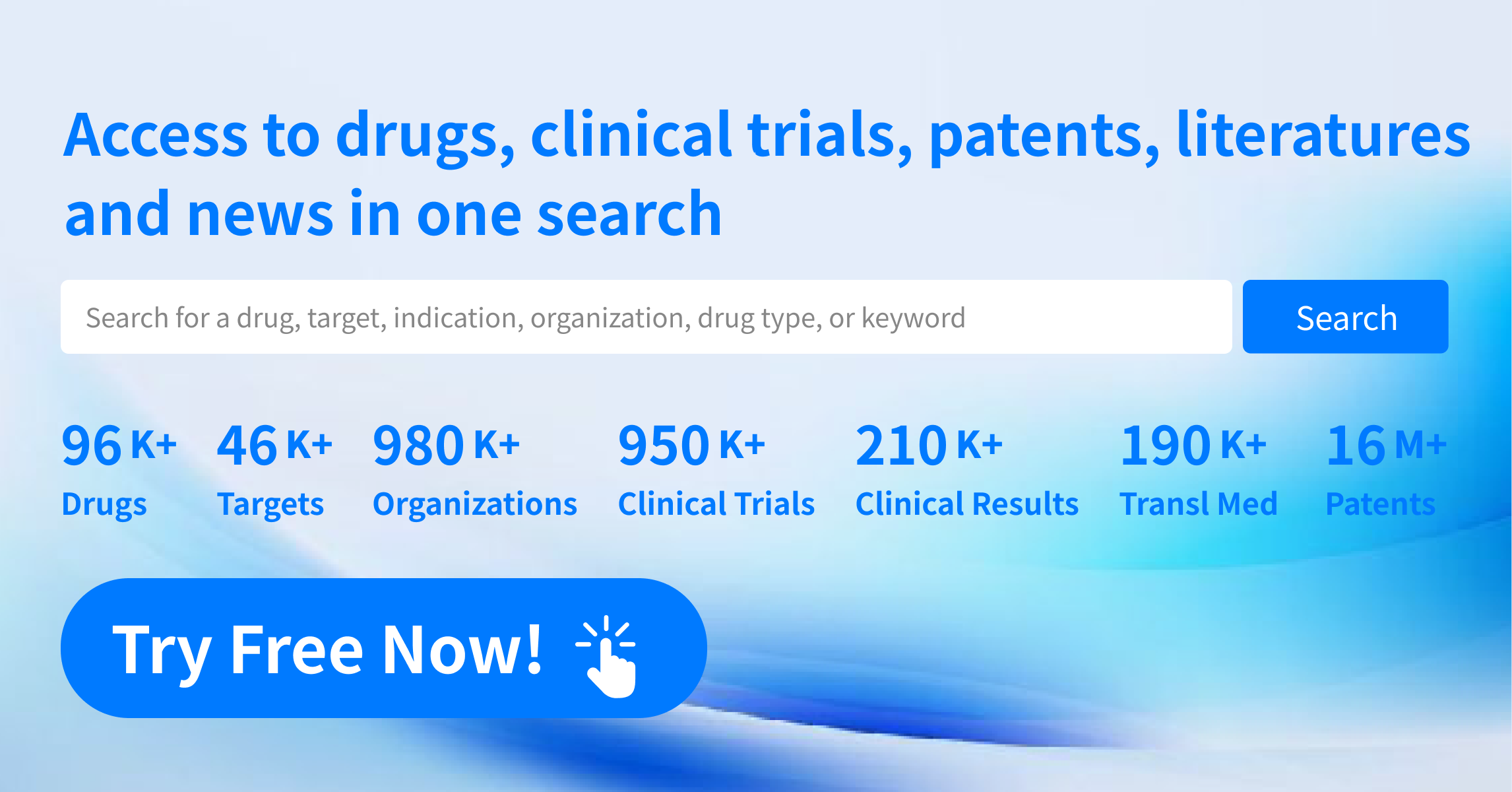Pharma Frontiers: Daily Digest of Global Pharmaceutical News – Sep 20
1.AstraZeneca's Fasenra Receives FDA Approval for Eosinophilic Granulomatosis with Polyangiitis (EGPA)
On September 18, AstraZeneca announced that its antibody therapy, Fasenra (benralizumab), has been approved by the U.S. FDA for the treatment of adult patients with eosinophilic granulomatosis with polyangiitis (EGPA). EGPA is a rare, immune-mediated vasculitis that can cause multi-organ damage and can be fatal if left untreated. According to the press release, this is the second biologic product approved by the FDA for the treatment of EGPA. The FDA’s approval is primarily based on positive results from the Phase 3 MANDARA trial, which has been published in the New England Journal of Medicine. The study compared the efficacy and safety of Fasenra with the IL-5 monoclonal antibody Nucala (mepolizumab) in patients with relapsed or refractory EGPA. The trial results showed that nearly 60% of patients treated with Fasenra achieved disease remission, meeting the non-inferiority criteria compared to the active control group. Fasenra is a monoclonal antibody that binds to the IL-5Rα receptor expressed on eosinophils. By binding to IL-5Rα, it recruits natural killer cells to induce apoptosis in eosinophils, thereby rapidly depleting these cells. It is currently approved in over 80 countries, including the U.S., Japan, the European Union, and China, as an add-on maintenance treatment for severe eosinophilic asthma (SEA).
2.Hengrui Pharmaceuticals Submits PD-L1/TGF-βRII Bispecific Fusion Protein for Marketing Approval
On September 19, Hengrui Pharmaceuticals announced that its New Drug Application (NDA) for the bispecific fusion protein SHR-1701, an anti-PD-L1/TGF-βRII agent, has been accepted by China's National Medical Products Administration's Center for Drug Evaluation (CDE). The drug is intended for first-line treatment in combination with fluorouracil and platinum-based chemotherapies for locally advanced unresectable, recurrent, or metastatic gastric and gastroesophageal junction adenocarcinoma. Currently, no similar products have been approved globally. In June 2024, the Phase III clinical trial (SHR-1701-III-307) for relarfapup-alpha injection met its primary endpoint, and the results were presented at the 2024 European Society for Medical Oncology (ESMO) Congress. SHR-1701 is a proprietary bispecific fusion protein developed by Hengrui Pharmaceuticals that targets both PD-L1 and TGF-βRII. It promotes the activation of effector T cells and effectively modulates the immune microenvironment within tumors, ultimately enhancing the immune system's ability to kill tumor cells.
3.Roche's Baloxavir Achieves Success in Phase III Study for Post-Exposure Influenza Prevention
On September 19, Roche announced positive results from the Phase III CENTERSTONE study, which evaluated the antiviral drug baloxavir for post-exposure prevention of influenza. The CENTERSTONE study (NCT03969212) is the first global Phase III trial to demonstrate the benefit of an antiviral drug for treating respiratory viral diseases in reducing viral transmission. It assessed the efficacy of a single oral dose of baloxavir in reducing household transmission of influenza when administered within 48 hours of symptom onset. Conducted at 272 sites worldwide, the study enrolled over 4,000 participants, including influenza patients and their household contacts aged 5 to 64. Baloxavir is an innovative cap-dependent endonuclease inhibitor that has been approved in more than 70 countries for treating influenza, including for pediatric populations in several countries. The new data from the CENTERSTONE study is expected to further enhance baloxavir's clinical value. Roche plans to present the preliminary analysis results of the CENTERSTONE study at the OPTIONS XII Influenza Prevention Conference from September 29 to October 2, 2024.
4.Lepu Biopharma's EGFR ADC Proposed for Priority Review
On September 19, the CDE website indicated that Lepu Biopharma's MRG003 is proposed for priority review. The drug is intended for the treatment of recurrent or metastatic nasopharyngeal carcinoma (NPC) in patients who have failed at least two lines of systemic chemotherapy and PD-1/PD-L1 inhibitors. MRG003 is the most advanced domestically developed EGFR-targeted antibody-drug conjugate (ADC). It is an ADC composed of an EGFR-targeting monoclonal antibody conjugated to the potent microtubule inhibitor payload monomethyl auristatin E (MMAE) via a valine-citrulline linker. This ADC specifically binds with high affinity to EGFR on the surface of tumor cells, and after endocytosis and lysosomal cleavage, it releases the potent payload, leading to tumor cell death.
Phase II study results showed that in 61 NPC patients who had failed prior platinum-based chemotherapy and/or PD-(L)1 inhibitors, the objective response rates (ORR) in the 2.0 mg/kg cohort (n=28) and the 2.3 mg/kg cohort (n=29) were 39.3% and 55.2%, respectively, with median progression-free survival (PFS) of 7.3 months and not yet matured, respectively. Previously, MRG003 was granted Breakthrough Therapy Designation (BTD) by the CDE in September 2022, and was awarded Fast Track Designation (FTD) and BTD by the FDA in December 2023 and August 2024, respectively.
5.Betta Pharmaceuticals' PROTAC New Drug Approved for Clinical Trials
On September 19, Betta Pharmaceuticals and C4 Therapeutics, Inc. (C4T) announced that the capsule form of CFT8919, co-developed by both companies, has received a "Drug Clinical Trial Approval Notice" from China's National Medical Products Administration (NMPA). The drug is intended for patients with non-small cell lung cancer (NSCLC) carrying EGFR mutations. CFT8919 is an orally bioavailable allosteric BiDAC™ (bifunctional protein degrader) that targets the allosteric site of the L858R mutation, demonstrating high selectivity, while also being effective against secondary resistance mutations of EGFR, such as T790M or C797S. In May 2023, Betta Pharmaceuticals announced a collaboration with C4 Therapeutics to introduce the allosteric BiDAC degrader CFT8919. The total value of this partnership is nearly $400 million.
6.Zhimeng Biopharma's Innovative Therapy for ALS Approved for Clinical Trials in China
On September 18, the CDE website indicated that Zhimeng Biopharma's first-in-class drug CB03-154 tablets have been approved for clinical trials, aimed at developing a treatment for adult patients with amyotrophic lateral sclerosis (ALS), also known as Lou Gehrig's disease. Public data shows that this is an innovative drug targeting the central nervous system in Zhimeng Biopharma's pipeline and acts as a selective KCNQ2/3 opener. The product has already been granted Orphan Drug Designation by the U.S. FDA for the ALS indication. According to the CDE website, this is the first time the product has received IND approval in China. CB03 is a next-generation KCNQ2/3 potassium channel opener with good ion channel selectivity, chemical and metabolic stability, activity against neurohyperexcitability, and favorable pharmacokinetics and safety profile. The product has already undergone multiple-dose Phase I safety clinical trials in healthy volunteers in Australia and the U.S. In addition to the ALS indication, CB03 is also being developed for epilepsy, depression, neuropathic pain, and cancer pain.
7.Novo Nordisk Invests $600 Million in Extrahepatic LNP Delivery Technology
On September 18, NanoVation Therapeutics announced a multi-year research collaboration with Novo Nordisk aimed at advancing the development of innovative genetic medicines targeting cardiometabolic diseases and rare diseases. This collaboration combines NanoVation Therapeutics' proprietary long-circulating lipid nanoparticle (lcLNP) RNA delivery technology with Novo Nordisk's expertise in cardiometabolic and rare disease research and clinical translation. Under the terms of the agreement, Novo Nordisk and NanoVation will jointly develop two major projects utilizing base editing technology to treat certain rare genetic disorders, with plans to expand to up to five additional targets related to cardiometabolic and rare diseases. Novo Nordisk will receive global exclusive rights to use NanoVation's LNP technology for these two key projects. NanoVation will receive research funding and is eligible for up to $600 million in upfront and potential milestone payments over the course of the multi-year collaboration.
8.Organon Acquires Dermavant for $1.2 Billion
On September 18, Organon announced the acquisition of Roivant subsidiary Dermavant. According to the agreement, Organon will pay $175 million upfront, an additional $75 million upon approval for the atopic dermatitis indication, $950 million in commercial milestone payments, and a percentage of future sales, bringing the total deal value to $1.2 billion. Benvitimod, approved for the treatment of psoriasis in 2022, achieved sales of $18.4 million in the second quarter of 2024, holding a leading position in new prescriptions for topical psoriasis treatments. If approved for atopic dermatitis, which has a PDUFA date in the fourth quarter of this year, the market potential could expand fourfold.
How to obtain the latest research advancements in the field of biopharmaceuticals?
In the Synapse database, you can keep abreast of the latest research and development advances in drugs, targets, indications, organizations, etc., anywhere and anytime, on a daily or weekly basis. Click on the image below to embark on a brand new journey of drug discovery!




